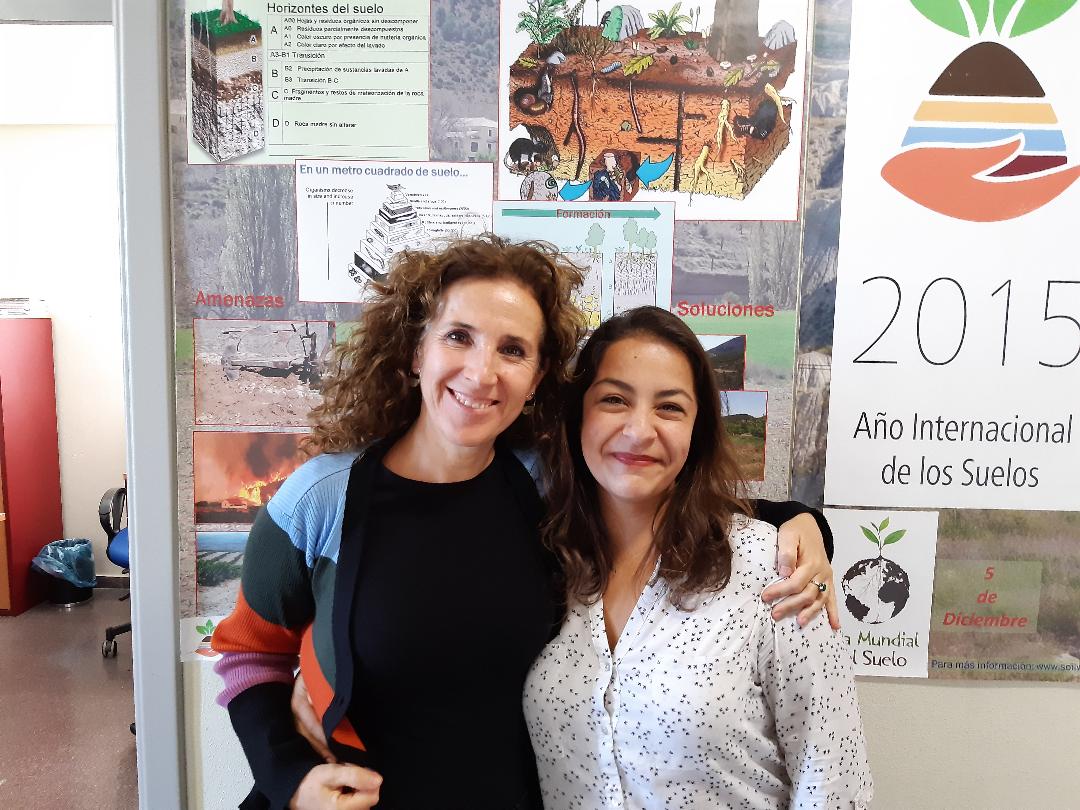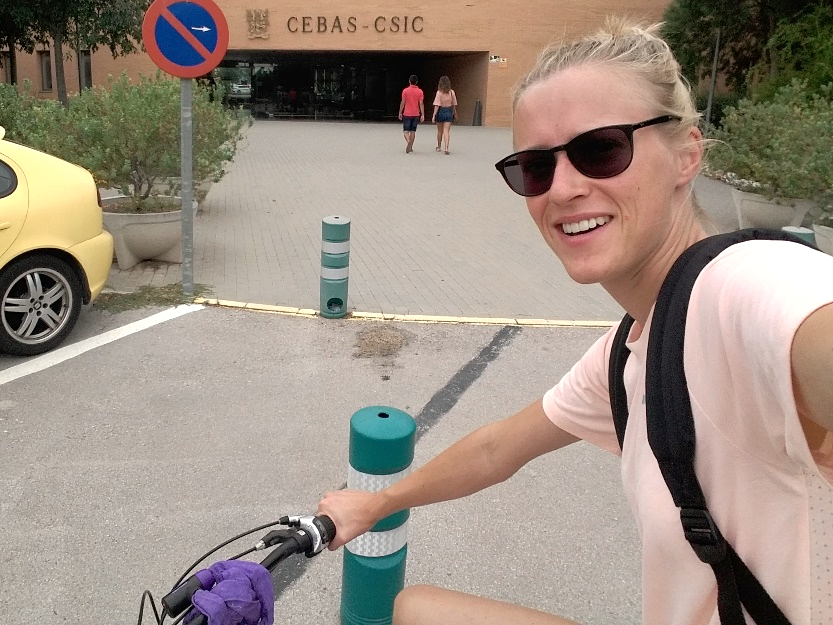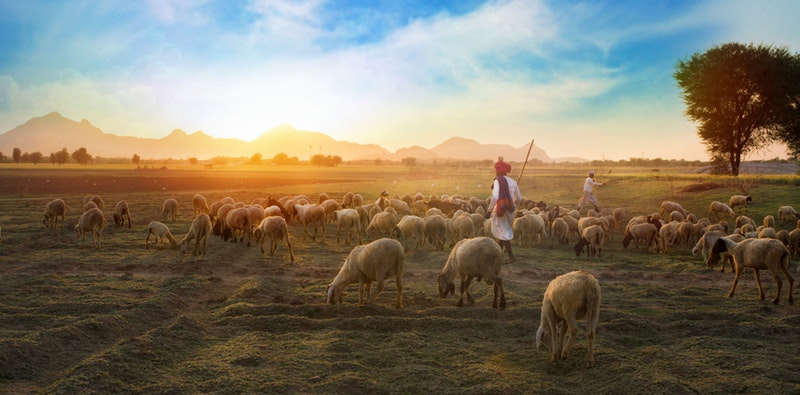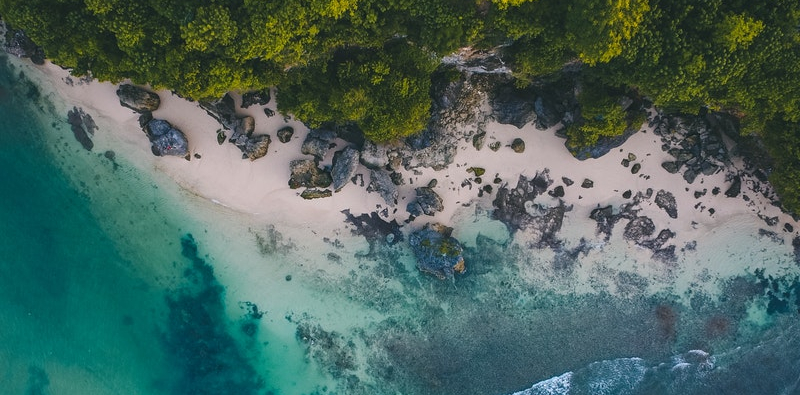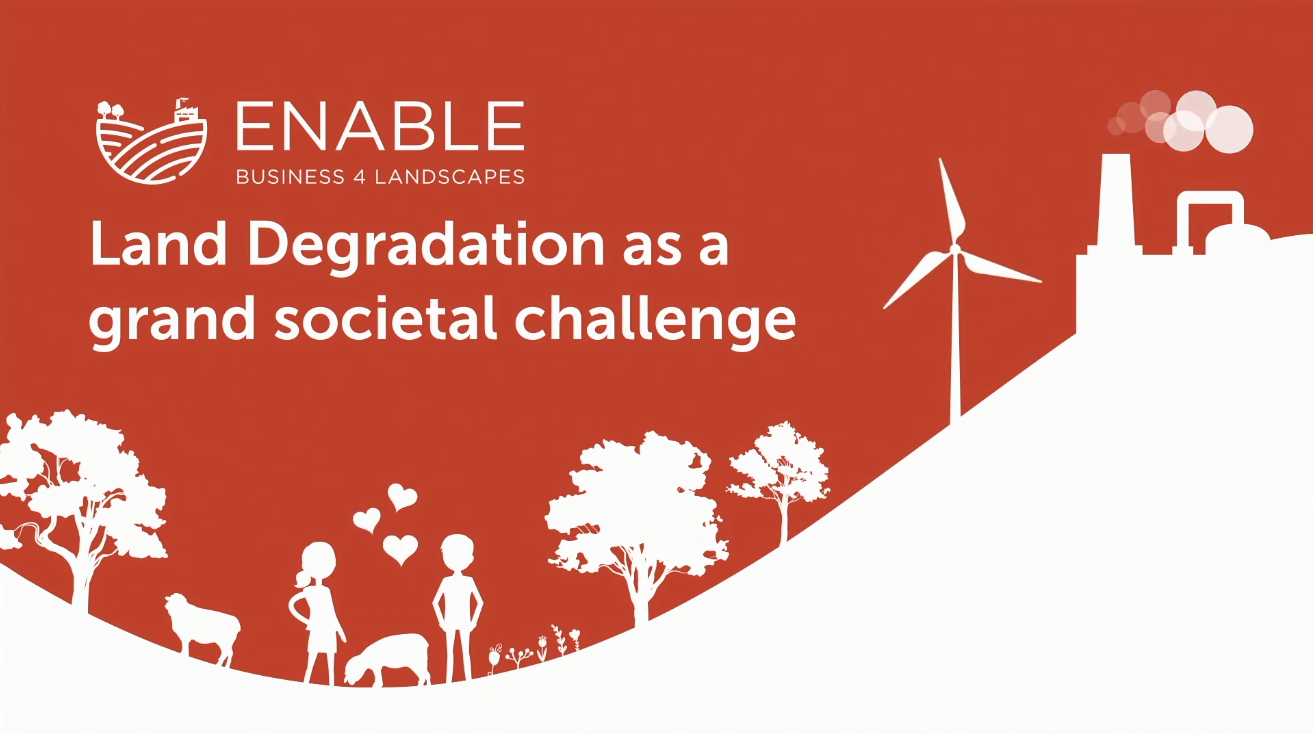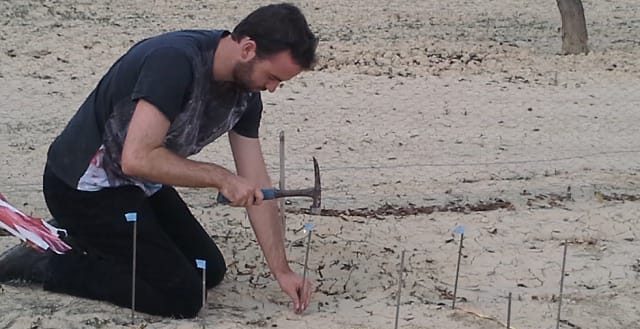Birce Azizli is a Turkish PhD student in Kaposvar University-Hungary. Her major is Environmental Economics and she will spend an internship period within CEBAS for 4 months until the end of December 2019 in scope of EIT Food RIS Fellowship Programme. The target of her stay is to obtain a broader knowledge about agroecology and to integrate this in her own major. Birce is now working on economic valuation of the ecosystem services- particularly soil and sediment carbon sequestration- and the adaptability of these practices in Southern Spain under the supervision of Carolina Boix-Fayos.
Student visiting from Wageningen University (Netherlands)
Eva Lansu, an Earth and Environment student from Wageningen University (The Netherlands), is doing her four month internship at our research group. She is working on a project about CO2 respiration of sediments. The study area is an almond orchard 16 km east of Murcia. During heavy rain events, the area turns into a river bed. Then, both erosion and sediment deposition take place. Eva has been measuring respiration of sediments after rain events and doing experiments in the laboratory. She will try to relate respiration to sediment properties, like soil moisture and organic carbon content, in order to better understand which factors enhance respiration. Besides working on her own project, she enjoys going into the field and helping with laboratory work for the various projects of the research group. At the end of December, Eva will finish her internship and complete her master’s degree, as this internship forms the last part of her studies. Supervision and guidance are provided by Maria Martinez-Mena and the Soil Physics and Land Management group of Wageningen University.
UPCOMING GLF DIGITAL SUMMIT: Large scale restoration of agroecosystems – Opportunities and Challenges of participatory monitoring
The Global Landscapes Forum (GLF) is a movement dedicated to achieving the Sustainable Development Goals and Paris Climate Agreement, putting communities first in addressing landscape-level issues. With science and traditional knowledge at the core, we are presenting the digital summit “Large scale restoration of agroecosystems – Opportunities and Challenges of participatory monitoring”.
Restoration practices must be designed in environmentally, socially and economically efficient ways in order to enhance long term farmer adoption. Putting together farmers’ experiences and scientific knowledge through participatory research and monitoring can help to find the most feasible solutions to restore degraded lands and develop resilient agroecosystems. The benefits of stakeholder engagement are multiple, but can lead also to some challenges.
In this Digital Summit, we will present three case studies in which different participatory research and monitoring approaches and methods were used to foster agro-ecosystem restoration.
- African thickets and forests
- Mediterranean drylands in Spain
- Subtropical Atlantic rainforest in Brazil
The webinar will take place on Tuesday 8th of October 2019 from 11am to 12pm CEST.
For more info and registration check this link.
This Digital Summit is hosted by GLF and initiated by J. de Vente and R. Lujan Soto from as a partner in the ENABLE consortium and supported by a research grant from Fundación la Caixa to RLS (LCF/BQ/ES17/11600008).
DIGITAL SUMMIT: From river to coast – Collaboration to restore coastal and rural areas
GLF (Global Landscapes Forum) Digital Summits are conversations with global leaders, experts and influencers on the world’s most pressing issues. Join us for this Digital Summit, which we will address the potential benefits, limitations and challenges of participatory modelling as a methodology to co-create scenarios promoting coastal-rural synergies.
Participatory approaches to map and model system dynamics can help to create mutual understanding of appropriate collective action for ecosystem restoration initiatives. But in contexts with active resource or value system conflicts, this can be a challenging task.
In particular, three examples of ongoing projects in Spain, India, and Portugal will be presented: 1) the Mar Menor coastal lagoon and its contributing catchment area, as part of the COASTAL project; and 2) the Ria de Aveiro coastal lagoon and Lower Vouga River Natura2000 sites and 3) A project with farmers about groundwater management in India.
Update: You can now watch the recording in the following link!
This Digital Summit is hosted by GLF and initiated by J. de Vente and J. Martínez-López as partner in the ENABLE consortium and COASTAL project.
Beca de introducción a la investigación: JAE INTRO 2019
Si te apetece tomar contacto con la carrera científica y trabajar identificando estrategias de utilización del agua y nutrientes en especies semiáridas y su respuesta al cambio climático, solicita un JAE intro con nosotros en el área de Recursos Naturales: REF: JAEINT19_EX_0749
El trabajo se centra en estudiar la relación entre la diversidad de estrategias de uso del agua de las diferentes especies que componen una comunidad y los factores ambientales que más se verán afectados por el cambio climático (precipitación y temperatura), así como sobre los procesos de descomposición de la materia orgánica, para entender la capacidad de adaptación de las especies y comunidades forestales y arbustivas a un aumento de aridez y las implicaciones en el ciclo del carbono.
Contacto: querejeta@cebas.csic.es; iprieto@cebas.csic.es
New MOOC on Business Model Innovation for Sustainable Landscape Restoration
You can now subscribe and start our second Massive Open Online Course (MOOC) on Business Model Innovation for Sustainable Landscape Restoration. We developed this MOOC with our partners from the European Network for the Advancement of Business and Landscape Education (ENABLE).
The course is launched today, 14 February, and is open for all and free of charge. This is the second MOOC co-created by the ENABLE consortium members. It builds upon ENABLE’s first MOOC, which offered comprehensive knowledge of landscape degradation and restoration from the perspectives of natural sciences, economics and business administration.
This new MOOC is transdisciplinary, designed for environmental and business students, professionals, as well as anyone with an interest in landscape 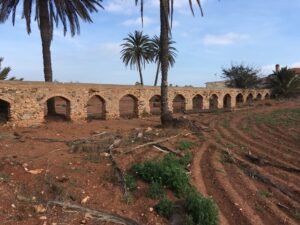 restoration based on sustainable business models. The course takes a partnership approach to take on the challenge of large-scale landscape restoration, reflecting the interconnectedness of ecology, society and economy in landscape management – supporting wellbeing of people and the planet.
restoration based on sustainable business models. The course takes a partnership approach to take on the challenge of large-scale landscape restoration, reflecting the interconnectedness of ecology, society and economy in landscape management – supporting wellbeing of people and the planet.
This eight-week online course aims to equip learners with practical business tools to restore landscapes. In the course, participants are encouraged to go through the business model innovation process in small groups of their choice, based on a common interest. The course is designed in three phases that move the participants from ideas towards the succ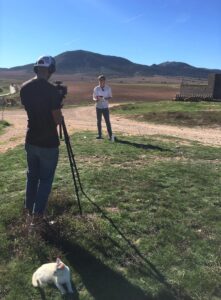 essful implementation of a new business model for sustainable landscape restoration based on four different returns: return of natural and social capital, return of inspiration and return of financial capital. Each step of the process is illustrated with three real-life cases of landscape restoration to show how the theory looks in practice. These cases are: a case about crop diversification and low input farming in Spain; a large-scale woodland restoration case in Iceland; and a case about the challenges of recovering from forest fires in Portugal.
essful implementation of a new business model for sustainable landscape restoration based on four different returns: return of natural and social capital, return of inspiration and return of financial capital. Each step of the process is illustrated with three real-life cases of landscape restoration to show how the theory looks in practice. These cases are: a case about crop diversification and low input farming in Spain; a large-scale woodland restoration case in Iceland; and a case about the challenges of recovering from forest fires in Portugal.
Worsening land degradation caused by human activities is undermining the well-being of two-fifths of humanity, driving species extinctions and intensifying climate change (IPBES). But there’s a huge potential for restoring landscapes: around two billion hectares of land, about two times the size of China, can be restored. This free online course aims to equip learners from environmental, business or other backgrounds with practical business tools to restore landscapes.
You can now start the course and work on solutions for landscape restoration – one of the biggest challenge of our time. For more information, watch the trailer and see the ENABLE website, and its Twitter, Facebook and LinkedIn pages. You can register for the course here.
ENABLE is a strategic partnership of organizations in the private, public and non-profit sector, and is co-funded by the Erasmu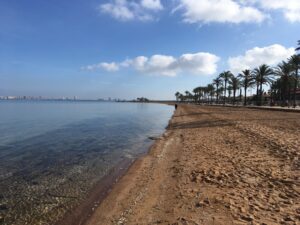 s+ programme of the European Union. The partnership is led by Rotterdam School of Management, Erasmus University (RSM) and consists of the Spanish National Research Council (CEBAS-CSIC), Commonland, United Nations University Land Restoration Training Programme (UNU-LRT), and Nova School of Business and Economics.
s+ programme of the European Union. The partnership is led by Rotterdam School of Management, Erasmus University (RSM) and consists of the Spanish National Research Council (CEBAS-CSIC), Commonland, United Nations University Land Restoration Training Programme (UNU-LRT), and Nova School of Business and Economics.
Student visiting from Wageningen University (Netherlands)
Jessica Snoek is a Dutch MSc student from Wageningen University and Research (the Netherlands) and will do her internship for four months during the winter (December – March). She is doing fieldwork at multiple locations related to the Diverfarming project, helping out in the lab to analyse soil samples and has her own small research on erosion triggered by rainfall events in the Rogativa catchment (upper Segura). During her time in Murcia she aims to practice as many hands-on research methods as possible, gain insight in the possibility of becoming a researcher, learn as much Spanish as she can and complete her master’s degree.
The internship is supervised by Maria Martinez-Mena and Carolina Boix-Fayos in combination with the Soil Physics and Land Management group (SLM) at Wageningen University.
World Soil Day: Register now for our new MOOC on business-driven sustainable landscape restoration!
Worsening land degradation caused by human activities is undermining the well-being of two-fifths of humanity, driving species extinctions and intensifying climate change (source: IPBES). However, there is a huge potential for restoring landscapes: around two billion hectares of land, about two times the size of China, can be restored.
In celebration of World Soil Day, we are proud to announce the launch of our second free online course today: Business Model Innovation for Sustainable Landscape Restoration.
This MOOC is created by the European Network for the Advancement of Business and Landscape Education (ENABLE). In the MOOC, participants are encouraged to go through the business model innovation process in groups of their choice, based on a common interest. The ENABLE project is a partnership of organizations in the private, public and non-profit sector, led by Rotterdam School of Management, Erasmus University (RSM). The Soil and Water Conservation Research Group at CEBAS-CSIC is part of this partnership and contributed to the development of this MOOC. Subscribing to this free online course starts on Wednesday 5 December, World Soil Day. The MOOC will launch on 14 February 2019.
This free online course aims to equip learners from environmental, business or other backgrounds with practical business tools to restore landscapes. In 8 weeks, you will learn about the phases of Business Model Innovation and how to apply them to landscape restoration. In the MOOC we illustrate every step of the process by zooming in on 3 landscape situations: restoring the volcanic Hekluskogar area in Iceland, crop diversification in southern Spain, and the challenges of recovering from forest fires in Portugal.
This new MOOC builds upon ENABLE’s first MOOC, setting focus on the potential for a positive role of business model innovation for landscape restoration, highlighting the following elements: vision formulation, systems analysis, stakeholder analysis, opportunity analysis, business model design, solution validation, assessment and monitoring, and reflection and iteration.
Contributions from CEBAS-CSIC staff come from Joris de Vente and Carolina Boix Fayos. External parties who contributed to the MOOC are WWF’s Landscape Finance Lab, the Natural Capital Coalition (NCC), Ecosystem Services Partnership (ESP), and many more.
Project leader Eva Rood says: “What all of the partners of the ENABLE consortium realise is that we need to join forces in order to figure out the approach for this wicked problem of land degradation. It’s a typical problem where ecology and economy need each other and this is where the four returns models comes in. So we are trying to jointly come up with models that deliver the financial, social, natural return and return of inspiration instead of only financial capital or only natural capital.”
For more information, see the ENABLE website, and its Twitter, Facebook and LinkedIn pages.
TEASER VIDEO:
Se buscan candidatos/as interesados/as en solicitar una beca FPU (2018) en el Consejo Superior de Investigaciones Científicas (CEBAS-CSIC) de Murcia
En la Tesis Doctoral se abordarán cuestiones relacionadas con los impactos a medio plazo (6-7 años) del cambio climático sobre la vegetación, la microbiota edáfica y la materia orgánica del suelo de ecosistemas de matorrales mediterráneos semiáridos, con datos obtenidos en experimentos manipulativos en campo con alto nivel de replicación. Esta propuesta de tesis se enmarca dentro del proyecto de investigación del Plan Nacional Retos de la Sociedad “Alteraciones en la estequiometria y productividad primaria de matorrales semiáridos en respuesta al cambio climático” (ver resumen del proyecto debajo). El grupo en el que el solicitante realizaría la tesis dispone de datos de intercambio de gases, composición isotópica (d13C y d15N) y de nutrientes (N, P, K, Fe, Ca, Mg etc.), biomasa, supervivencia y descomposición de hojarasca en 6 especies vegetales, además de nutrientes y carbono en diferentes fracciones del suelo superficial desde 2011 (7 años), que habría que completar para la tesis con una o dos campañas más de campo. Estos datos provienen de tres sitios experimentales de campo donde se manipulan las condiciones climáticas de precipitación y temperatura para simular escenarios futuros de cambio climático en comunidades de matorrales semiáridos en la región Mediterránea. El proyecto de investigación puede incluir múltiples aspectos según el interés del candidato (centrados en evaluar las respuestas de plantas, microbiota edáfica, suelo y sus interacciones) y se anima a los candidatos a proponer, en base a sus intereses, nuevos experimentos y enfoques.
La tesis se llevaría a cabo en el Departamento de Conservación de Suelos y Agua y manejo de residuos orgánicos del CEBAS (CSIC) en Murcia.
Según establece la convocatoria los solicitantes deberán tener el grado, licenciatura o Máster en el área de Ciencias con fecha de titulación posterior al 1 de Enero de 2015 y una nota media del expediente académico superior a 8,0.
El plazo finaliza el 29 de octubre por lo que los interesados pueden contactar por email enviando su Curriculum Vitae y la nota de expediente académico antes del 25 de octubre.
Más detalles sobre la convocatoria aquí.
Contacto:
Iván Prieto Aguilar (iprieto@cebas.csic.es, ResearchGate)
Nacho Querejeta (querejeta@cebas.csic.es, ResearchGate)
Student visiting from Wageningen University (Netherlands)
Niek Verschaeren is a Dutch student from Wageningen University and Research Centre (the Neterlands). He will do his master thesis here at our research group, within the European project Diverfarming. This project aims to find a way how farming can be both profitable and sustainable. Within this project valuable intercrops are planted, which can reduce erosion. The coming months he will do research on this subject and will look at how these intercrops affects erosion. He will measure erosion with 3 different methods: 1) erosion pins (see image), 2) mapping of erosion features and 3) drone images. Erosion pins will measure erosion very accurately on a small scale. Mapping of erosion features will help to estimate erosion at larger spatial scales. Drone images will be used for getting insight in the connectivity of the area and will also be used to measure differences in the future for different scales. He will perform his research at our group until the end of December and finish his thesis in Wageningen. Supervision and guidance from our group is provided by Maria Martinez-Mena, (Pedro Perez Cutillas) and Carolina Boix-Fayos.
